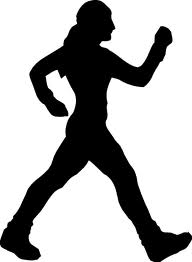Daily Update 4.4
Week 7: Module 4: Date 3/15/13
Now that we have learned about calories and what they are composed of we need to figure out how many we need to ingest. The Harris-Benedict equation was developed for just this situation. The Harris-Benedict equation was created in 1919 by two professors. This equation uses your height, weight, age, sex and activity level to estimate your basal metabolic rate and daily caloric intake. Your basal metabolic rate (BMR) is the amount of energy your body uses each day while at rest.

The Harris-Benedict equation was revised in 1984. These are the two equations. The first one is the original and the second the current iteration:
| Men | BMR = 66.4730 + (13.7516 x weight in kg) + (5.0033 x height in cm) – (6.7550 x age in years) |
| Women | BMR = 655.0955 + (9.5634 x weight in kg) + (1.8496 x height in cm) – (4.6756 x age in years) |
| Men | BMR = 88.362 + (13.397 x weight in kg) + (4.799 x height in cm) – (5.677 x age in years) |
| Women | BMR = 447.593 + (9.247 x weight in kg) + (3.098 x height in cm) – (4.330 x age in years) |
These equations give you your BMR. For example, if the average 30 year old female weighs 69.5 kilos and is 169 cm tall, your equation would look like this:
447.593+ (9.247 x 69.5) + (3.098 x 169) – (4.330 x 30) = BMR
447.593 + 642.667 + 523.56 – 129.9 = 1483.92 calories/day
This number is then modified by your level of activity as follows:
|
Little to no exercise |
Daily calories needed = BMR x 1.2 |
|
Light exercise (1–3 days per week) |
Daily calories needed = BMR x 1.375 |
|
Moderate exercise (3–5 days per week) |
Daily calories needed = BMR x 1.55 |
|
Heavy exercise (6–7 days per week) |
Daily calories needed = BMR x 1.725 |
|
Very heavy exercise (twice per day, extra heavy workouts) |
Daily calories needed = BMR x 1.9 |
If we use our BMR from above for a moderately active average woman we multiply 1483.92 x
1.55 we get a daily caloric intake of 2300.07.


These equations enabled the crew of the JRH to make a detailed meal plan for the expedition. Go ahead and do this equation for yourself. Any surprises? How many calories do you typically eat in a day? Here are some typical foods and their calories.
| Apple (medium size) = 100 caloriesBanana (medium size) = 100 calories
Grapes (1 cup) = 115 calories Whole milk (1 cup) = 100 calories Egg = 78 calories Bagel = 290 calories Potato chips (1 oz.) = 155 calories Tortilla chips (1 oz.) 138 calories Cheetos (1.5 oz.) = 240 calories Peanut butter (1 tbsp.) = 100 calories Baked beans, 1 cup, canned, w/o pork = 306 calories Broccoli, cooked, 1 cup = 40 calories Corn, canned whole kernel, 1 can–10 oz = 360 calories Kidney beans, canned, 1 cup = 230 calories Potato, french fries, 3 oz = 130 calories Rice, brown, 1 cup, cooked = 232 calories |
||||||||||||||||||||||||
| Cheese – 1 oz. American = 106 caloriesMilk (1 cup) 1% = 104 calories
Beef, ground, raw, 4 oz., regular = 351 calories Avocado = 380 calories Pepperoni, 1 oz = 140 calories Eggos Buttermilk = 200 calories Hershey’s chocolate bar = 200 calories This chart is a rough estimate of caloric intake. Remember, these numbers are just ballpark numbers and every individual’s needs will be different.
|
||||||||||||||||||||||||
